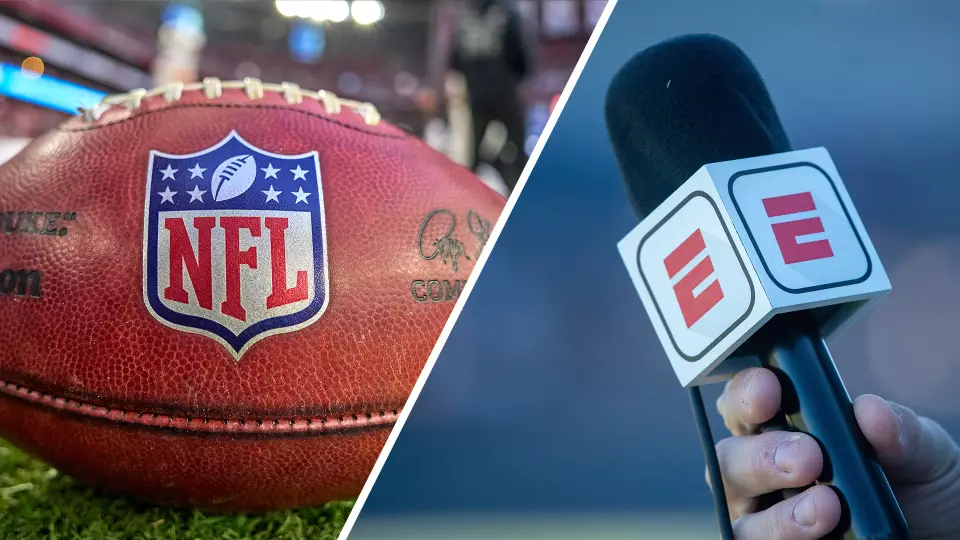In a move that signals a seismic shift in sports broadcasting, ESPN is set to acquire the NFL Network and a suite of essential NFL media assets. This strategic move not only grants ESPN the linear rights to the acclaimed RedZone channel but also signifies a deeper integration of NFL content into ESPN’s vast media ecosystem. By securing a 10% equity stake in ESPN, the NFL demonstrates confidence in ESPN’s innovative potential, signaling a future where football fans will access NFL coverage through a more unified and digital-first lens. The partnership promises a future where fans can seamlessly engage with their favorite sport, regardless of platform or location.
This acquisition marks a decisive shift in how audiences will experience football content. Instead of fragmented broadcasts across various providers, fans will now enjoy a consolidated conduit to NFL games, highlights, and exclusive programming through ESPN. The blending of NFL and ESPN assets is not merely about content; it’s about reimagining the football viewing experience. The integration of NFL’s top-tier properties with ESPN’s technological expertise suggests a focus on creating engaging, personalized, and interactive content that resonates with a digital-savvy audience. The sheer scope of this deal underscores ESPN’s ambition to become the primary gateway for NFL fans in a highly competitive streaming landscape.
Revolutionizing Fan Engagement and Digital Innovation
One of the most compelling aspects of the deal is ESPN’s plan to embed NFL digital assets into its upcoming direct-to-consumer streaming platform. This innovative approach aims to capitalize on the rapidly increasing demand for cord-cutting and on-demand viewing. The arrangement means that NFL Network will be fully owned and operated by ESPN, with full control over linear and digital dissemination. Fans can expect a more robust, user-friendly platform that offers unparalleled access to NFL content—live games, highlights, behind-the-scenes stories, and now—more interactive features driven by ESPN’s technological prowess.
Furthermore, the partnership will expand ESPN’s NFL game rights by three additional games per season, bringing the total to 28. Some games shifting from ESPN to NFL Network will diversify the viewing options, giving fans more choice about when and how they watch. These games will be available across both streaming and traditional pay-tv, preserving accessibility for a broad demographic base. Notably, ESPN will acquire exclusive rights to RedZone, which continues to be a fantasy football staple, while the NFL retains control over the channel’s digital distribution. This layered rights structure ensures strategic flexibility for both entities, and it promises richer, more comprehensive NFL coverage—both real-time and supplementary.
Implications for the Future of Sports Media
This groundbreaking partnership underscores a fundamental transformation in sports media strategy. ESPN’s foray into owning significant NFL content and distribution rights signals its aspiration to build a comprehensive, vertically integrated football platform. By doing so, ESPN aims to foster a more immersive and interactive environment for fans, one driven by innovation rather than traditional broadcasting constraints. The launch of ESPN’s upcoming streaming service, with a velvet-rope price point of $29.99 per month, exemplifies a shift towards accessible, all-in-one entertainment hubs tailored for modern consumers.
Additionally, the NFL’s decision to sell assets like NFL Films and maintain control over core properties like NFL.com indicates a desire to diversify its revenue streams and leverage its legacy content effectively. The partnership’s strategic implications extend beyond mere content sharing; it’s about creating a new ecosystem where rights ownership, content innovation, and fan engagement converge to redefine how football is experienced in the digital age. This move positions ESPN as not just a broadcaster but as an innovative leader, capable of integrating live sports, interactive features, and digital media into a seamless user experience.
With these developments, the NFL and ESPN are effectively setting the stage for a more dynamic, interconnected football universe—one where fans are at the center of a multi-platform ecosystem that is as engaging as it is expansive. This bold approach, driven by technology and strategic vision, promises to elevate the sport’s digital presence and meet the evolving demands of a global audience hungry for real-time, immersive football coverage.

